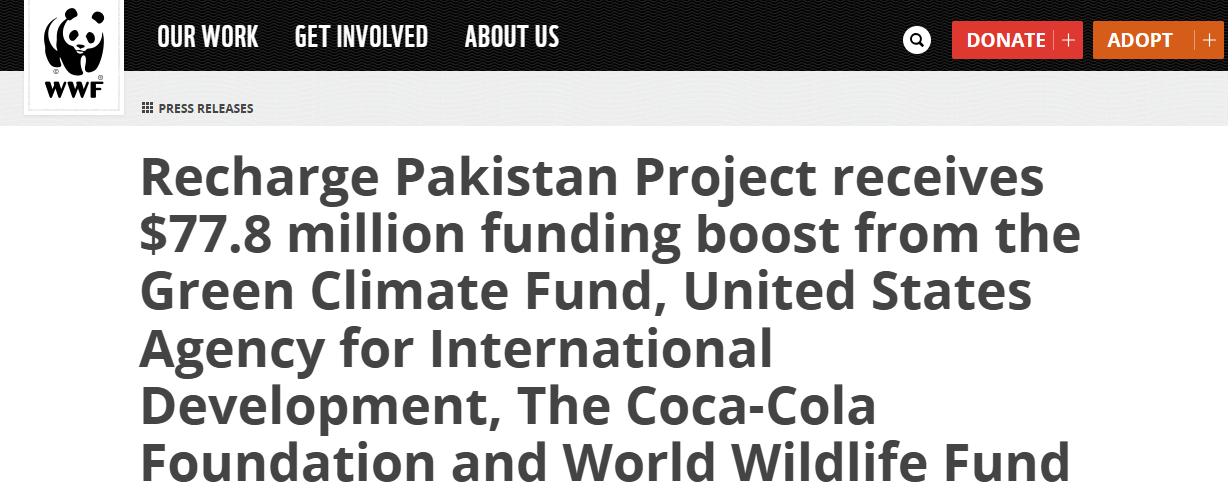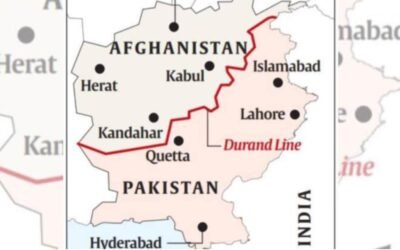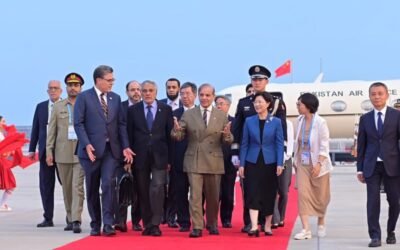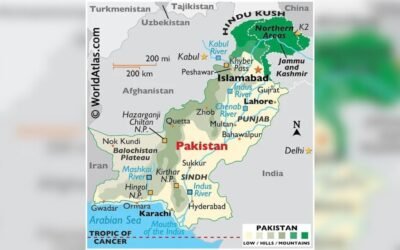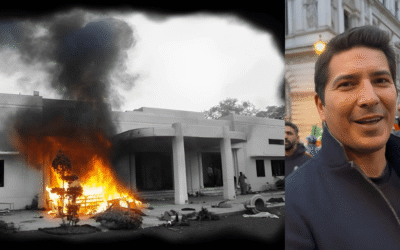Introduction: A Global Crisis Hits Home
Climate change is no longer a distant threat—it is a daily reality for millions of people in Pakistan. From deadly floods to rising heatwaves, Pakistan ranks among the top 10 countries most vulnerable to climate change according to the Global Climate Risk Index 2021 (Germanwatch).
Pakistan generates less than 1% of the world’s pollution, yet it still loses billions of dollars every year due to climate-related problems.
As an Islamic republic, Pakistan has a moral obligation to protect Allah’s creation. The Quran reminds us: “And do not cause corruption upon the earth after its reformation” (Surah Al-A’raf 7:56). In this spirit, Pakistan must adapt and lead with justice and unity.
Devastating Costs of Inaction
In 2022, Pakistan experienced its worst floods on record. One-third of the country went underwater, over 33 million people were affected, 8 million lost their homes, and at least 1,700 people died.(UNDP).
Food security, infrastructure, and health services suffered a significant decline. Lahore recorded a “felt temperature” of 50°C, with heat intensity reaching up to 60°C during June 2025.
The economic cost is also significant. By 2050, Pakistan could lose up to 9% of its annual income due to floods, heat, crop damage, and health issues unless it takes decisive action on climate change.
Where International Aid Is Helping
Global cooperation is vital. Pakistan received over US$9 billion in commitments at the International Conference on Climate-Resilient Pakistan. It was held in Geneva on 9 January 2023, co-hosted by the UN and Pakistan, surpassing its initial funding target.
This conference laid the groundwork for long-term rehabilitation under the Resilient Recovery, Rehabilitation, and Reconstruction Framework..
Key contributions include:
- World Bank – Climate-Smart Agriculture & Infrastructure
In July 2022, the World Bank gave $200 million to help farmers in Punjab. To use better water-saving methods and protect their crops from climate change.
- Asian Development Bank (ADB – Roads & Infrastructure
In October 2023, the ADB backed a US$320 million loan to Pakistan. This funding is aimed at rehabilitating and climate-proofing roads and related infrastructure. In the Khyber Pakhtunkhwa province.
- Green Climate Fund (GCF) – Early Warning Systems
The Green Climate Fund provided $66 million for the “Recharge Pakistan” project. It helps protect flood-affected areas and enhance early warning systems following the 2022 floods.
Most of these funds are aimed at rebuilding after the 2022 floods and launching long-term climate resilience projects.
Local Efforts: What Pakistan Is Doing
- Ten Billion Tree Tsunami: Pakistan initiated the “10 Billion Tree Tsunami” in 2018 to increase tree coverage. So far, over 2 billion trees have been planted across the country.
- Recharge Pakistan: This initiative is a US$77.8 million effort, funded by the Green Climate Fund, USAID, the Coca-Cola Foundation, WWF, and Pakistan’s government. It focuses on flood and drought mitigation through water conservation and the restoration of wetlands.
- Climate Smart Villages: In places like Rahim Yar Khan and Badin, farmers are learning how to conserve watercultivate various crops, and utilise solar power for their farming operations.
- Green Public Transport: Karachi has introduced electric buses. Lahore’s Orange Line metro is partly powered by solar energy. Islamabad also aims to have a green bus fleet by 2026.
- Pakistan’s National Adaptation Plan: Finalised in 2023, it outlines priority adaptation sectors and aims to align provincial and national climate responses.
These initiatives reflect Pakistan’s resolve to act locally while seeking global support.
Faith and Adaptation: An Islamic Duty
Islam encourages environmental stewardship. Prophet Muhammad ﷺ said: “If a Muslim plants a tree or sows seeds, and a bird, or a person, or an animal eats from it, it is regarded as a charitable gift (Sadaqah)” (Bukhari).
Adaptation is more than survival; it is a sacred duty. Caring for nature means caring for our ummah and future generations.
Challenges to Adaptation
Despite strong commitments, major hurdles remain:
- Funding Delays: Many pledged funds remain unspent due to bureaucratic red tape and poor financial tracking.
- Urban Expansion: Encroachment into floodplains and wetlands continues to worsen disaster risks.
- Lack of Coordination: Federal and provincial climate policies often lack coherence.
- Technology Gaps: Climate modeling, data systems, and renewable energy tools remain underutilized.
Without resolving these, the benefits of aid and local projects may fall short.
What Pakistan Needs To Do
- Track Aid Usage Transparently: Develop a live online dashboard showing real-time fund utilization.
- Strengthen Local Governance: Empower disaster management authorities at district levels with training and resources.
- Integrate Faith-Based Campaigns: Work with mosques and religious leaders to build community awareness.
- Invest in Research: Partner with local universities for solutions tailored to Pakistan’s geography and needs.
- Educate and Empower Youth: Launch national campaigns to involve students in tree plantation and recycling projects.
These steps will not only improve results but also build long-term capacity.
A Smoother Path Forward: Hope and Resolve
Pakistan is not powerless. With its youthful population, Islamic values of stewardship, and international support, the country is well-placed to become a model of resilience. Local solutions—when combined with global partnerships—can bring about meaningful and lasting change.
Community action, public trust, and spiritual motivation provide Pakistan with unique tools that many countries do not possess. It is time to wield them with focus and faith.
Conclusion: Rising with Faith and Action
As climate disasters increase in frequency and severity, the world observes how Pakistan responds. The journey is challenging but not impossible. Through effective policy, truthful leadership, and a shared moral vision, Pakistan can lead the way. This is not merely a battle for survival — it is a test of faith and character. From the mosques of rural Sindh to the universities of Islamabad, a climate-conscious Pakistan must emerge. Every tree planted, every flood mitigated, every village powered by clean energy becomes a prayer in action.
As the Prophet Muhammad ﷺ taught, even planting a tree is a form of worship. Let that act of worship now become our national resolve. Through resilience, unity, and divine guidance, Pakistan will rise.


